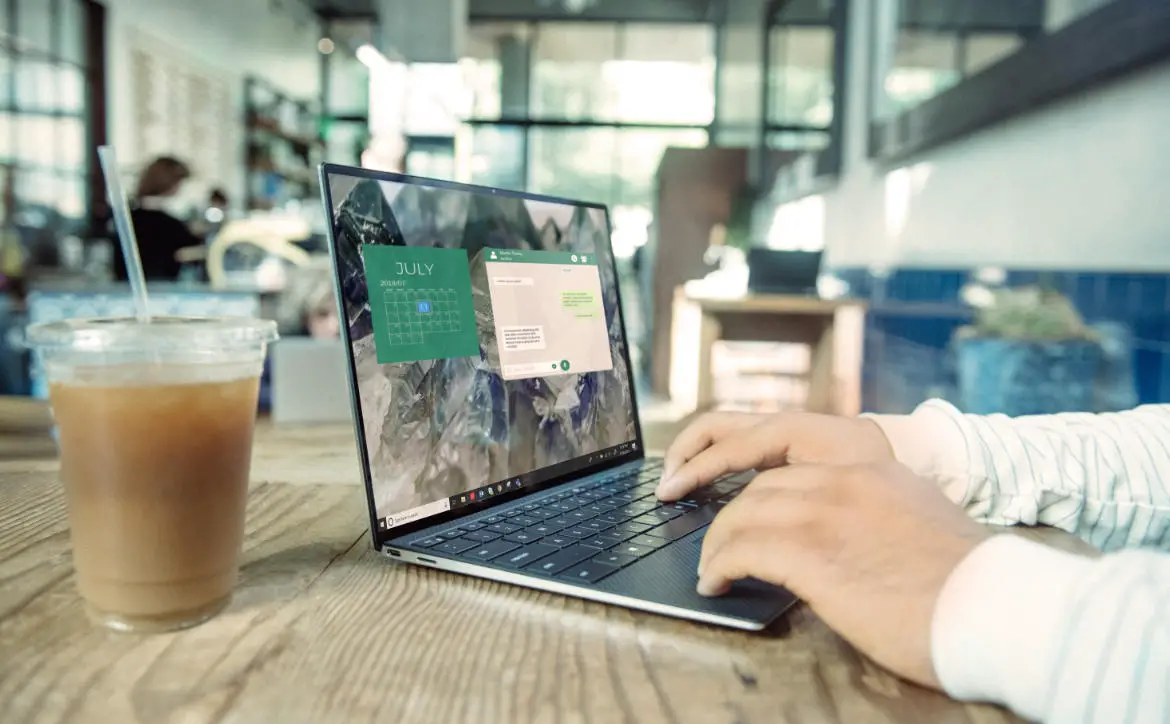Hybrid and remote schedules are here to stay: according to a recent study, 30% of US companies say that they have gone fully remote, and 43% that they allow half of the office to work from home on a laptop and the other half from the office. Overall, employers have responded overwhelmingly well to this change, citing flexibility and convenience as the top benefits.
Estimated reading time: 6 minutes
However, this major transition to remote work has also generated added pressure to companies, which now have to train and educate their staff so that staff members do not fall prey to cybercriminals. Although a company computer can be hacked at any time, including on the office premises, these incidents are rarer because the work environment is tightly controlled, and there are a series of security measures in place. But when an employee takes their work laptop home, they become more vulnerable. Cybercriminals have been quick to exploit this vulnerability, and the number of attacks on work laptops has increased. To make sure you don’t become a victim, follow these tips:
Secure your home network
When most of us install our home Wi-Fi networks, we generally go through the simple Next -> Next -> Finish process without bothering to look at advanced settings. Unfortunately, this is not enough if you want to keep cybercriminals at bay. When millions of people brought their work laptops home, hackers quickly took advantage of the fact that most home networks are unsecured or poorly secured and accessed sensitive data worth millions.
The good news is that you don’t have to be an IT security expert to safeguard your home network:
- Always replace the default password your router came with.
- Create a strong Wi-Fi password with uppercase and lowercase letters, numbers, and special characters.
- Change your Wi-Fi name to something that your family would recognize, but that doesn’t give away your identity or address.
- Turn on WEP, WPA, or WPA2 encryption in the router settings.
- Monitor the devices that connect to your Wi-Fi network. If you see something suspicious, remove it, and change the password.
Encrypt your communication
One of the biggest perks of using a work laptop is that you aren’t limited to one single location. Depending on your lifestyle, you can work from home, but you can also work from a coffee shop or from co-working spaces, which are popping up all over the world. However, the downside of this setup is that it can be unsafe. When browsing the Web with your work laptop on unprotected networks like public Wi-Fi, cybercriminals can view your online activity via packet sniffing and man-in-the-middle attacks. For instance, you may think that you’re connecting to the café’s Wi-Fi, but if hackers are using a Wi-Fi pineapple, you could, in fact, be connecting to another network. To avoid exposing your data to cybercriminals online, buy a VPN to hide your IP address and encrypt your online traffic so that third parties don’t see it. Using a VPN(Virtual Private Network) is an all-around good practice that the entire family should follow, but it’s even more important when you use work laptops that contain sensitive business information.

Be careful when using your laptop in public
The practices used by cybercriminals are becoming more and more advanced. But did you know that many times, they don’t even have to use sophisticated tactics or brute force attacks to access your data? Breaking into a work laptop can be a matter of social engineering. Social engineering means that hackers try to exploit human behavior instead of using technical hacking to gain access to confidential files and systems. No matter how well you secure your work laptop, watch out for these common social engineering practices:
- While working from a café, do not leave lists of passwords and other work documents on the table where everyone can see them.
- Carry your laptop with you wherever you go. Never leave it unattended, even if it’s password-protected.
- Make sure no one can see your screen when you’re using your work laptop in a public space.
- Beware of strangers who say that they work in the same company and ask for private details.
- Double-check emails from potential clients. Hackers can pretend to be genuinely interested in company services and ask you to pay invoices in fraudulent accounts. It’s also not uncommon for hackers to impersonate high-level executives and trick them into transferring funds.
Always follow company guidelines
Although businesses switched to remote work in a rush and put security in second place in the first months of the pandemic, most of them managed to catch up and send their employees a list of cybersecurity guidelines. If you have received such a list, be sure to follow it.
More often than not, company cybersecurity policies include guidelines such as:
- Logging into the company’s VPN before starting work.
- Keeping your personal and work files separately.
- Don’t log in to your personal social media accounts from the work laptop, or don’t use the work laptop for personal reasons (i.e., online shopping) at all.
- Always install software updates when prompted.
- Change your passwords on a regular basis, creating strong passwords every time.
- Back up work files when instructed.
Enable “Find My” and remote wipe
Ideally, your work laptop will never get lost or stolen but, should it come to that, you have to be prepared. When you work from coffee shops or shared working spaces, this is, sadly, a possibility. If you use a Mac as a work computer, make sure you enable “Find My” so that you can easily reveal its location. For extra safety, you should also turn on the remote wipe. This way, if you have reason to believe the laptop was compromised and an unauthorized party gained access to your data, you erase everything on it. If you do not use a Mac, you can install third-party tracking and remote wipe tools, but always run them by your IT department for authorization first.
Conclusion
Using a work laptop is flexible and convenient; without the limitations of a physical office, you can work wherever you feel more productive, such as from home or a local coffee. But, to stay safe and prevent sensitive work data from getting into the wrong hands, make sure you protect your laptop with the strategies above.
What do you think of laptop security? Please share your thoughts on any of the social media pages listed below. You can also comment on our MeWe page by joining the MeWe social network.

Last Updated on May 25, 2021.










